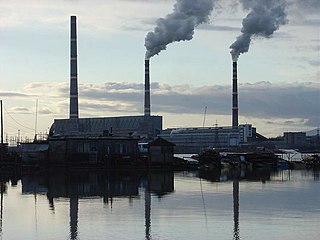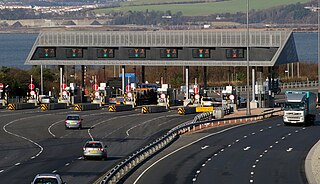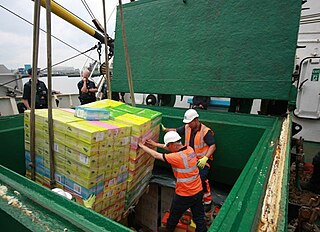
HM Customs and Excise was a department of the British Government formed in 1909 by the merger of HM Customs and HM Excise; its primary responsibility was the collection of customs duties, excise duties, and other indirect taxes.

The Inland Revenue was, until April 2005, a department of the British Government responsible for the collection of direct taxation, including income tax, national insurance contributions, capital gains tax, inheritance tax, corporation tax, petroleum revenue tax and stamp duty. More recently, the Inland Revenue also administered the Tax Credits schemes, whereby monies, such as Working Tax Credit (WTC) and Child Tax Credit (CTC), are paid by the Government into a recipient's bank account or as part of their wages. The Inland Revenue was also responsible for the payment of child benefit.

Her Majesty's Revenue and Customs is a non-ministerial department of the UK Government responsible for the collection of taxes, the payment of some forms of state support and the administration of other regulatory regimes including the national minimum wage.

The Customs Service is a state sector organisation of New Zealand whose role is to provide border control and protect the community from potential risks arising from international trade and travel, as well as collecting duties and taxes on imports to the country.

HM Customs was the national Customs service of England until a merger with the Department of Excise in 1909. The phrase 'HM Customs', in use since the Middle Ages, referred both to the customs dues themselves and to the office of state established for their collection, assessment and administration.
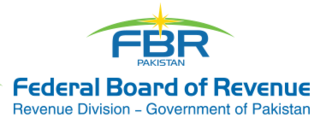
The Federal Board of Revenue is a top federal government body that investigates crimes related to taxation and money-laundering. FBR also operates special Broadening of Tax Base Zones that keep tax evaders under surveillance and compulsorily bring them into the tax net through its inspectors. These zones have exclusive powers to scrutinize tax evaders. BTB-Karachi nets potentially big tax evaders with the deployment of Inspectors Inland Revenue for field operations, and thus, contributes comparably greater than other BTB Zones in the country. FBR collects intelligence on tax evasion and administers tax laws for the Government of Pakistan and acts as the central revenue collection agency of Pakistan.
Taxes in India are levied by the Central Government and the state governments. Some minor taxes are also levied by the local authorities such as the Municipality.
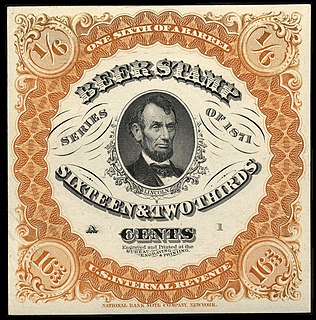
An excise or excise tax is any duty on manufactured goods which is levied at the moment of manufacture, rather than at sale. Excises are often associated with customs duties ; customs are levied on goods which come into existence – as taxable items – at the border, while excise is levied on goods which came into existence inland.
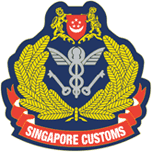
Singapore Customs is a government agency under the Ministry of Finance (Singapore). Singapore Customs was reconstituted on 1 April 2003, after the Customs and Excise Department and the Trade Facilitation Division and Statistics Audit Unit of International Enterprise Singapore were merged.

The Royal Malaysian Customs Department, abbreviated RMC or JKDM, is the government agency responsible for administrating the nation's indirect tax policy, border enforcement and narcotic offences. In other words, KDRM administers seven main and thirty-nine subsidiary laws. Apart from this,KDRM implements eighteen laws for other government agencies. KDRM is now known as JKDM when Dato' Sri Hj. Ibrahim bin Jaapar takes over as Director General of Customs in 2009.

The Ministry of Finance is a cabinet ministry in the Government of Thailand.
The Central Board of Indirect taxes and Customs (CBIC) is the nodal national agency responsible for administering Customs, GST, Central Excise, Service Tax & Narcotics in India. The Customs & Central Excise/CGST department was established in the year 1855 by the then British Governor General of India, to administer customs laws in India and collection of import duties / land revenue. It is one of the oldest government departments of India.
Directorate General of Intelligence and Investigation is a department of Federal Board of Revenue, Pakistan. It mostly works as an intelligence arm of Federal Board of Revenue but its day-to-day work involves investigations of revenue related crime and offenses as well. Usually having officers from the Inland Revenue Serive of FBR, it acts on the information from other law enforcement agencies, informants on its pay roll and corporate whistle blowers. D.G. I&I functions with three Regional Offices headed by Directors at Karachi, Lahore and Islamabad. Regional Directors Karachi and Lahore are assisted by three Additional Directors. These Additional Directors are responsible for Vigilance, Customs and Sales Tax, Corporate and Direct Tax. The Islamabad Regional Director have five Additional Directors which are Addl. Dir. Headquarters, Addl. Dir. Islamabad Vigilance, Addl. Dir. Customs, Sales and Central Excise, Addl. Dir. Peshawar and Addl. Dir. Quetta. Vigilance Wings at Peshawar and Quetta are headed by Deputy Directors.
Taxation in Norway is levied by the central government, the county municipality (fylkeskommune) and the municipality (kommune). In 2012 the total tax revenue was 42.2% of the gross domestic product (GDP). Many direct and indirect taxes exist. The most important taxes — in terms of revenue — are VAT, income tax in the petroleum sector, employers’ social security contributions and tax on "ordinary income" for persons. Most direct taxes are collected by the Norwegian Tax Administration (Skatteetaten) and most indirect taxes are collected by the Norwegian Customs and Excise Authorities.
Taxation in Bhutan is conducted by the national government and by its subsidiary local governments. All taxation is ultimately overseen by the Bhutan Ministry of Finance, Department of Revenue and Customs, which is part of the executive Lhengye Zhungtshog (cabinet). The modern legal basis for taxation in Bhutan derives from legislation. Several acts provide for taxation and enforcement only germane to their subject matter and at various levels of government, while a smaller number provide more comprehensive substantive tax law. As a result, the tax scheme of Bhutan is highly decentralized.

The Customs Excise and Preventive Service (CEPS) is the Government of Ghana agency responsible for the monitoring, regulation and inspection of exports into Ghana.

The Directorate General of Customs and Excise is an Indonesian government agency under Ministry of Finance that serves the community in the field of customs and excise. The Directorate General of Customs and Excise has the duty to organize the formulation and implementation of policies in the field of supervision, law enforcement, service and optimization of state revenue in the field of customs and excise in accordance with the provisions of legislation. The directorate also carry out some basic tasks of the Ministry of Finance in the field of customs and excise, in accordance with policies established by the Minister and securing government policies relating to the traffic of goods entering or leaving the Customs Area and the collection of import duties and excise and other state levies based on legislation apply.
Bangladesh Customs is the principle customs agency of Bangladesh.
Kenya’s taxation system covers income tax, value-added tax, customs and excise duty. The regulations are governed by independent legislators that govern the taxation system, the main legislator, the Kenya Revenue Authority (KRA) has different sections that deal with the above taxes while also having the authority to undertake reviews on various companies and corporations. The main goal of the system is to limit corruption as it is a problem in developing nations such as Kenya.


